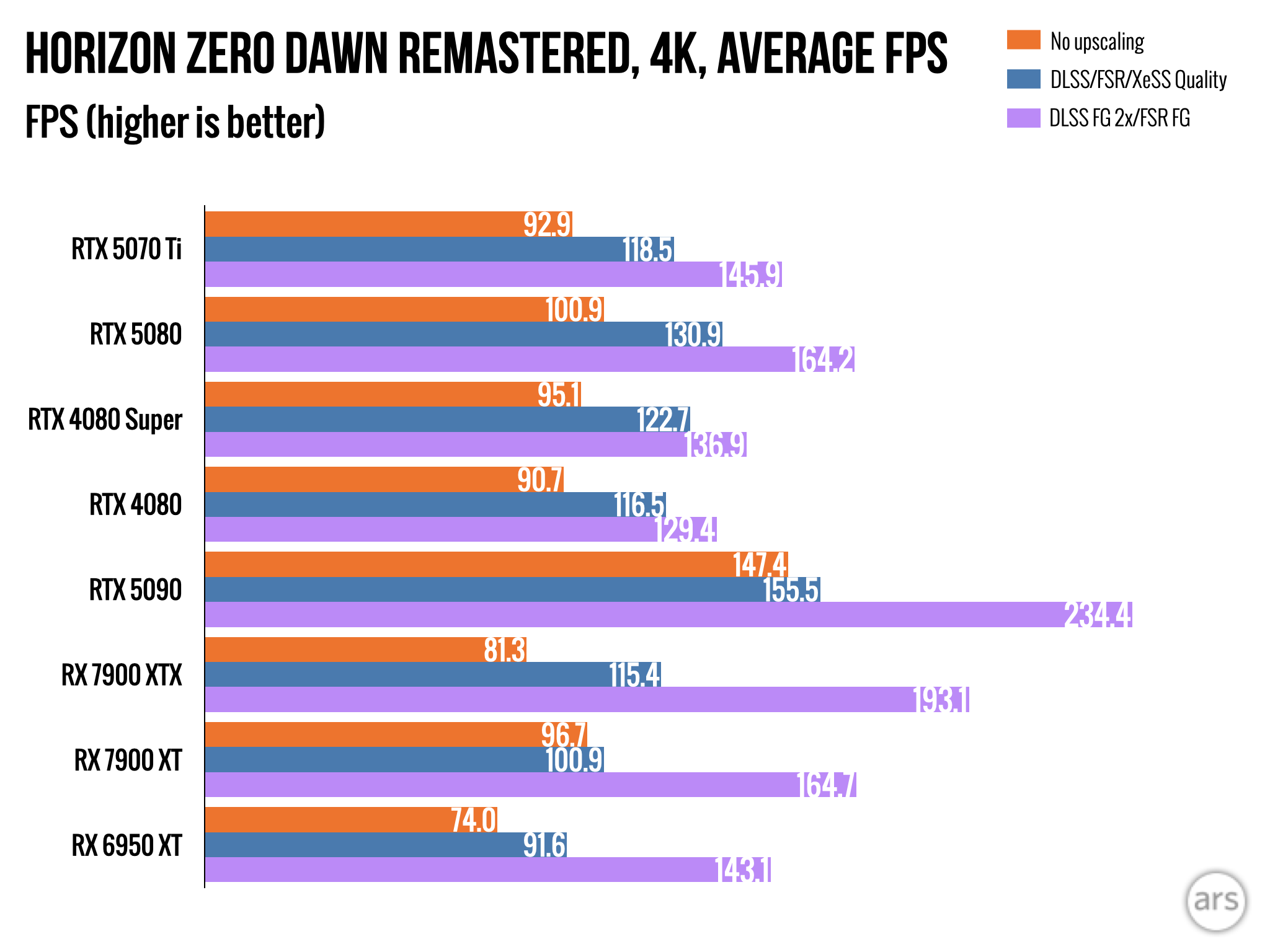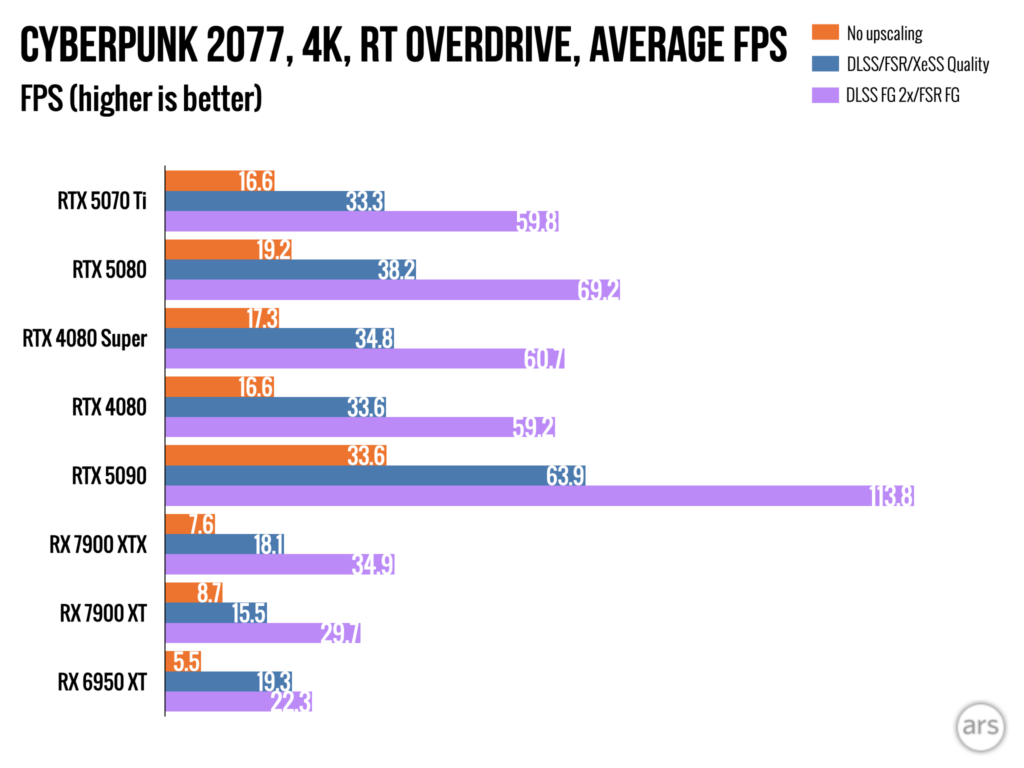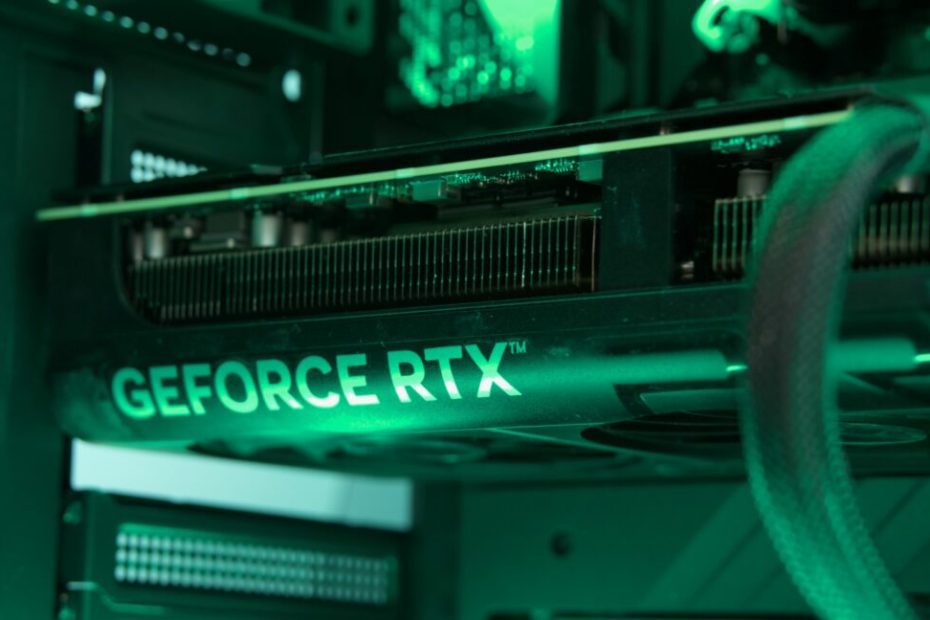Although we have tested several tickets and re -tested with recent drivers in our updated test bed, we do not have 4070 ti super, 4070 Ti or 3070 Ti available to test. We have provided a few figures for those GPUs from earlier assessments; These come from a PC with older drivers and a Ryzen 7 7800x3D instead of a 9800x3D, and we have put asterisken next to them in our charts. They still have to paint a fairly accurate picture of the relative performance of the older GPUs, but take them with that little grain of salt.
Performance and strength
Despite the recording of fewer Cuda nuclei than both version of the 4080, a combination of architectural improvements and raised memory bandwidth helps to keep the card equal with both 4080 cards almost perfect. In most of our tests it landed in the narrow strip between 4080 and 4080 Super, and the power consumption under load was also almost identical.

Benchmarks with DLSS/FSR and/or Frame generation enabled.
Benchmarks with DLSS/FSR and/or Frame generation enabled.


In every respect that matters, the 5070 TI is essentially an RTX 4080 that also supports DLSS Multi-Frame Generation. You can see why we would be mildly enthusiastic about it for $ 749, but less and less impressed by the price that the price crawls up to $ 1,000.
Being close to a 4080 also means that the performance gap between 5070 TI and the 5080 is usually quite small. In most games we have tested, the 5070 Ti floats about 90 percent of the 5080 performance.
The 5070 TI is also about 60 percent as fast as an RTX 5090. The performance is a lot lower, but the price-performance ratio is a lot higher, possibly as a result of the fact that the 5070 TI actually competed with other GPUs (in non-röntgentraced games, the Radeon RX 7900 XTX generally pays the same pace with the 5070 Ti, although it usually does not in stock at this late date is, unless you are willing to pay much more than you should do).

